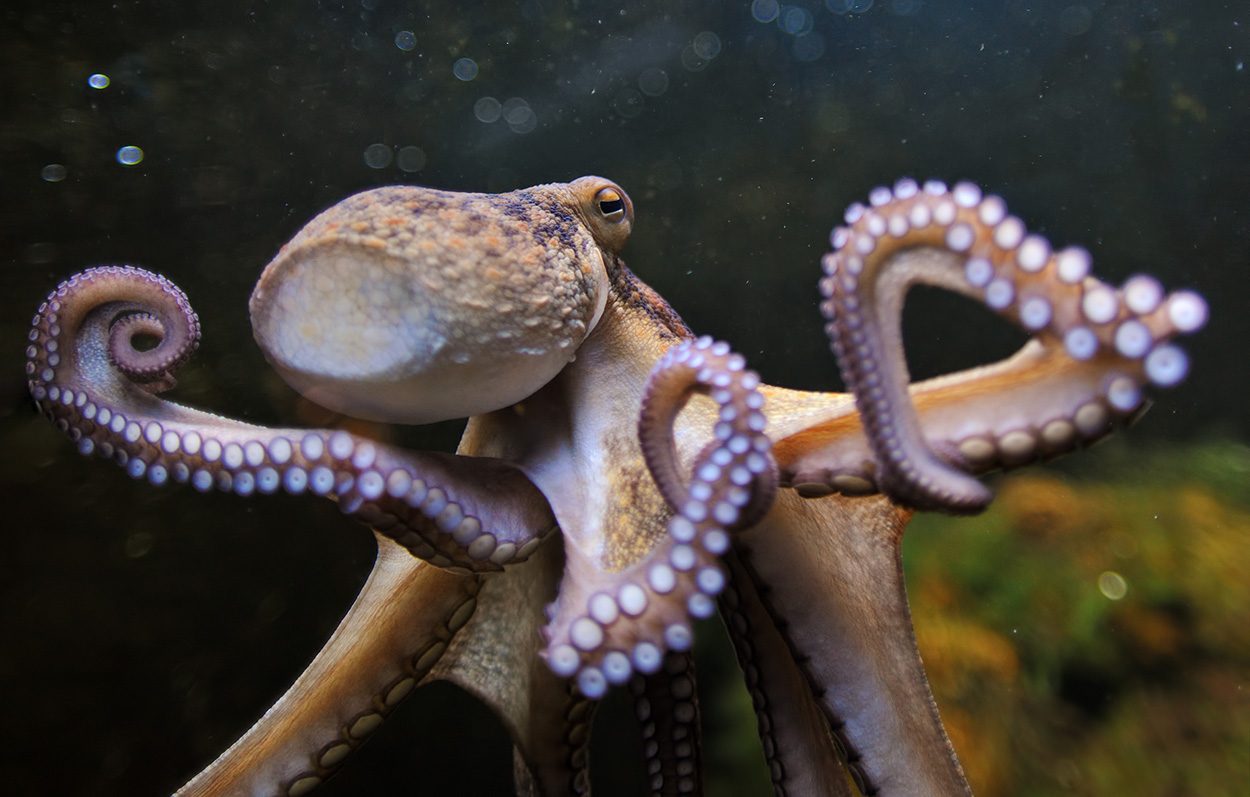Squids can solve complex puzzles, bees have different levels of exploration based on past experience, and crabs avoid environments in which they have experienced pain in the past. However, most countries of the world still do not realize that such invertebrates also have feelings or feel pain. Britain is now considering including some shellfish as sentient beings in an amendment to its animal welfare law. In the journal Science, the researchers argue that this is long overdue from a scientific point of view – but it also raises new ethical questions.
Can animals feel? This question is more complex than it first appeared and has been the subject of controversy for decades. For a long time, researchers have assumed that animals react to pain stimuli via the peripheral nervous system — similar to the reflexive way we raise our hands away from a hot stove before we cognitively register pain — but don’t emotionally assess pain or experience it as negative. The ability of bony mammals, birds, and fish to make sense is now widely recognized and recognized in many animal welfare laws. On the other hand, lobsters can still be cooked alive and there are no animal welfare standards for other invertebrates either.
Without language – without emotions?
“A report commissioned by the UK government from the London School of Economics (LSE) concludes that there is sufficient evidence that decoders and cephalopods are sensitive,” explains philosopher Kristen Andrews of York University in Canada. Together with behavioral researcher Frans de Waal of Emory University in Atlanta, she discusses the current state of research on emotions in animals and the resulting ethical implications in the journal Science.
Andrews and de Waal explained that “people accept oral statements about internal states as evidence of those states, and, on the contrary, sometimes equate the absence of language with the absence of those states.” According to the classical assumption, those who are unable to report their feelings do not have any feelings either. Doctors and scientists even applied this principle to infants until the 1980s: “Because doctors were skeptical that preterm infants could feel anything, they operated on them without anesthesia,” the authors report.
Invertebrates with feelings
“By the time the medical community recognized infant pain in the 1980s, the evidence was so overwhelming that doctors could no longer pretend that infants were immune to pain,” they wrote. “We are at a similar point where invertebrates can no longer be treated as if they only had a nociceptive response to noxious stimuli.” Among other things, studies have shown that cancers that have been exposed to experiments in certain environments receive electric shocks, and that they are avoided by environments in the future. The authors wrote: “The subconscious perception of pain cannot explain associative learning because there is no motivation to avoid the stimulus unless it is bad at the time.” In addition, it can be assumed that animals feel other emotions apart from pain. “Invertebrates such as octopuses show curiosity when exploring, emotion for individuals, or excitement in anticipation of a future reward,” Andrews describes.
Even a study of bees found that past experiences, positive or negative, influence how optimistic or pessimistic the animals are, and that these differences are reflected in the nervous system. If the bees were stressed, for example by shaking them in a container, they were less willing to try new things compared to the unstressed ones. They also found reduced levels of neurotransmitters such as dopamine and serotonin in their nervous system, similar to those seen in people with depression. “In any mammal, a pessimistic behavioral response combined with physiological signs of stress can be considered a sign of negative emotions. The same reasoning should be applied to insects,” say Andrews and de Waal.
Ethical implications
If it is indeed accepted that invertebrates also have feelings and can feel pain, for example, this would have several ethical implications. It is not difficult to see that the denial of feelings in animals has been morally valid in the history of human exploitation of animals, the authors wrote. “Although we are accustomed to thinking about how our actions affect other people, learning about animal sensitivity on a large scale also requires us to recognize – and consider – our impact on other species.”
While we can assume that lobsters, given the opportunity, would not agree to be cooked alive, for many other species we still lack knowledge of how to handle them appropriately. According to Andrews and de Waal, ethicists and biologists should work together to find a common framework for the ethical treatment of animals in the future.
Source: Frans de Waal (Emory University, Atlanta, USA) and Christine Andrews (York University, Toronto, Canada), Science, doi: 10.1126/science.abo2378

“Alcohol buff. Troublemaker. Introvert. Student. Social media lover. Web ninja. Bacon fan. Reader.”







More Stories
Simple recipe: sweet cream cheese slices from the tray
This is how our brain chooses what information it will remember in the long term
Up to 100 pilot whales stranded in Western Australia – Science